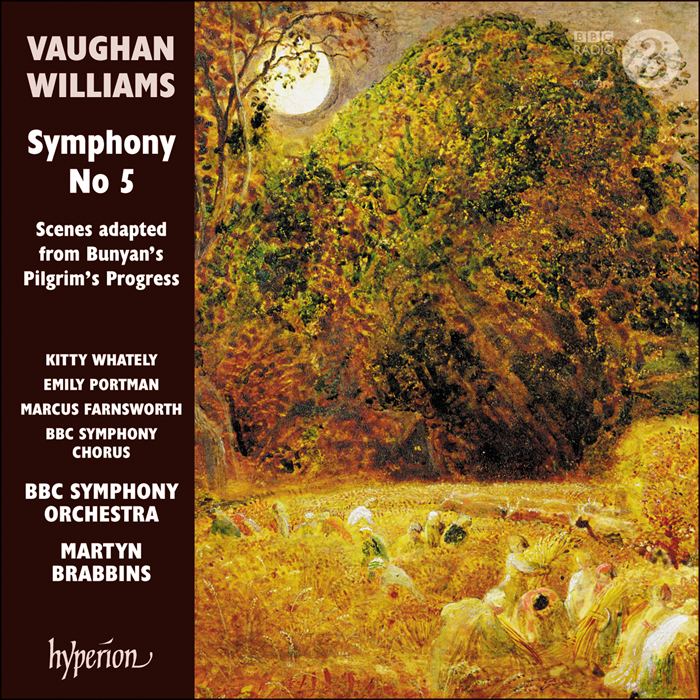Vaughan Williams: Symphony No 5 & Scenes adapted from Bunyan's Pilgrim's Progress
BBC Symphony Orchestra, Martyn Brabbins (conductor)
CDA68325
Vaughan Williams’s incidental music for The Pilgrim’s Progress has seldom been heard in its original guise since the 1906 premiere; yet further reason to acquire an outstanding interpretation of the composer’s Symphony No 5.
Behind The Cover
The visionary landscapes of Samuel Palmer (1805-1881) are immediately recognizable, and this one—sheaves of newly-reaped corn bathed in the light of a huge harvest moon, a magical evocation of a lost English Eden—is typical of his earlier (and best) work. Vaughan Williams loved Palmer's paintings, and it's easy to see why. Both artists responded to and were conscious of their role in continuing—a tradition of English pastoralism, albeit a pastoralism which was already increasingly beleaguered in Palmer's day. The parallels can be overt: although a response to George Meredith's poem, VW's The lark ascending is also clearly a product of the same tradition which produced Palmer's The skylark.
Yet we should remember that the genesis of the fifth symphony could not be further removed from this. Although VW had been working on the score since 1937, the first performance was given at a Promenade Concert on 24 June 1943, at the height of a world war. And yet, in complete contrast to the seething fury of the fourth symphony, the fifth radiates a quiet, confident ecstasy over the course of (most of) its allotted forty minutes, which cannot be unrelated to the circumstances in which it was written.
Perhaps this is the secret of the fifth symphony's success on record over the last 76 years. The first recording—still one of the best—was set down in Manchester by Barbirolli and the Hallé Orchestra in February 1944, since when it has always been one of VW's most performed and recorded (and loved). Certainly, there are few living conductors so attuned to its emotional complexities as Martyn Brabbins, whose account (like those of the other Vaughan Williams symphonies he's recorded so far) is a major highlight of the composer's discography.

